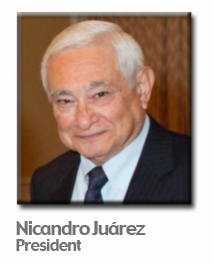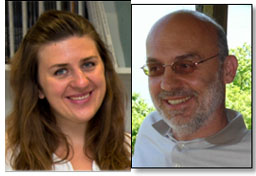Dear Friends of J&A:
Juárez & Associates supports USAID’s youth development policy. As a firm guided by  a vision of sustainability, we know that providing opportunities to youth is the most important investment any country can make towards national development. While no longer children but on the brink of adulthood, youth can be tireless in their vision and can hold the essential belief that good futures lie ahead, that dreams can come true – but only for opportunities for which they could develop skills and apply their talents. Never was this truer than in this age of rapid communication, where the internet is available to all, poor or wealthy, and where evidence of the possibility of quality of life and democracy are just clicks away. What to do for youth who have the hope, see these possibilities, but lack the opportunity to fulfill their dreams?
a vision of sustainability, we know that providing opportunities to youth is the most important investment any country can make towards national development. While no longer children but on the brink of adulthood, youth can be tireless in their vision and can hold the essential belief that good futures lie ahead, that dreams can come true – but only for opportunities for which they could develop skills and apply their talents. Never was this truer than in this age of rapid communication, where the internet is available to all, poor or wealthy, and where evidence of the possibility of quality of life and democracy are just clicks away. What to do for youth who have the hope, see these possibilities, but lack the opportunity to fulfill their dreams?
For 42 years, J&A has worked with recognized experts in their fields to explore solutions and create optimal opportunities to improve the quality of life of foreign aid beneficiaries around the world. This approach is as relevant today in our work supporting youth as it was 42 years ago. Engaging renowned experts in education, health, economic development and peace processes, J&A has designed in all our project interventions to support the generation that will carry on successes long after the projects have ended. Giving young people the educational and health assistance they need to improve their capacities, chances at secure, prosperous futures and healthy living, as well as developing the whole individual so they can participate in and shape democracies, is our objective and our motivation. This is sustainability – this is the hope for the future.
This newsletter is dedicated to presenting the views of experts who have tackled the problems of youth and development and whose solutions have been heard by development agencies, international funding sectors and governments alike.
J&A Presents Global Experts on Youth and Development
Nicandro Juárez, President of Juárez & Associates Inc. invited four experts whose solutions to youth and development challenges have been heard and implemented by development agencies, international funding sectors, and governments around the globe.

Knowledge in the Era of Globalization by Marcelo Suárez-Orozco, Ph.D., Dean of the UCLA Graduate School of Education.
Globalization’s increasing complexity necessitates a new paradigm for learning and teaching. The mastery and mechanical regurgitation of rules and facts should give way to a paradigm in which cognitive flexibility and agility win the day. The skills needed for analyzing and mobilizing to solve problems from multiple perspectives will require individuals who are cognitively flexible, culturally sophisticated, and able to work collaboratively in groups make up of diverse individuals.
The Need for Yourth Workforce Development in South Africa by Linda Zuze, Ph.D., Senior Lecturer at Wits Business School, University of Cape Town, South Africa.
South Africa is not alone in facing a rising tide of youth unemployment. Across the world, roughly 300 million young people are out of work and educational programs. Part of the problem lies in recent global economic conditions that have increased youth unemployment, at least in the short term. During recessions, it is young workers who are typically hardest hit because companies retrench their newest recruits firs. What adds urgency to the South African story is that the labor market plays a crucial role in recycling existing patterns of poverty.
world, roughly 300 million young people are out of work and educational programs. Part of the problem lies in recent global economic conditions that have increased youth unemployment, at least in the short term. During recessions, it is young workers who are typically hardest hit because companies retrench their newest recruits firs. What adds urgency to the South African story is that the labor market plays a crucial role in recycling existing patterns of poverty.
 Training the Poor in Times of Unemployment by Claudio de Moura Castro, Ph.D., Special Advisor to the President of Positivo Educational Group, Economist and International Consultant.
Training the Poor in Times of Unemployment by Claudio de Moura Castro, Ph.D., Special Advisor to the President of Positivo Educational Group, Economist and International Consultant.
Amongst respected researchers, there is ample consensus that training does not create jobs.
Therefore, if in a given environment, jobs are not being created, there are perplexing issues concerning what to do with existing training systems and what to offer to those who are not finding good jobs. Below are some suggestions to help break the dismal predicament of “no demand, no training.”
The Role of NGOs in Youth Participation and Democratization in Kosovo by Xhavit Rexhaj , Vice Rector for International Cooperation at AAB University and Brikena Avdyll, Project Manager, Association “Autizmi,” Prishtina, Kosovo..
, Vice Rector for International Cooperation at AAB University and Brikena Avdyll, Project Manager, Association “Autizmi,” Prishtina, Kosovo..
Kosovo, the youngest nation in Europe, is also known as the home of the Young Europeans owing to its young population, half of whom are below the age of 25.

